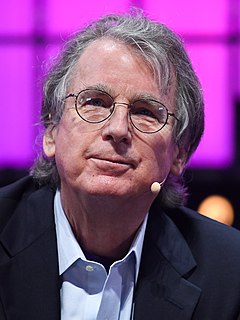A Quote by Steven Levy
As an open system, Android is not under the tight control of its creator, Google.
Related Quotes
Ultimately, application vendors are driven by volume, and volume is favored by the open approach Google is taking. There are so many manufacturers working so hard to distribute Android phones globally that whether you like [Android 4.0] or not, you will want to develop for that platform, and perhaps even first.
Google Now is one of those products that to many users doesn't seem like a product at all. It is instead the experience one has when you use the Google Search application on your Android or iPhone device (it's consistently a top free app on the iTunes charts). You probably know it as Google search, but it's far, far more than that.
"Do you have information that there's an android in the cast? I'd be glad to help you, and if I were an android would I be glad to help you?" "An android," he said, "doesn't care what happens to another android. That's one of the indications we look for." "Then," Miss Luft said, "you must be an android."
If you invest in Microsoft or Oracle, or a number of other companies for that matter, you're fundamentally making a bet that there's going to be no innovation. So an investment in Microsoft is a bet that the operating system is going to stay the same, it won't be replaced by Linux, Google Docs, or a mobile platform like iOS or Android.




























